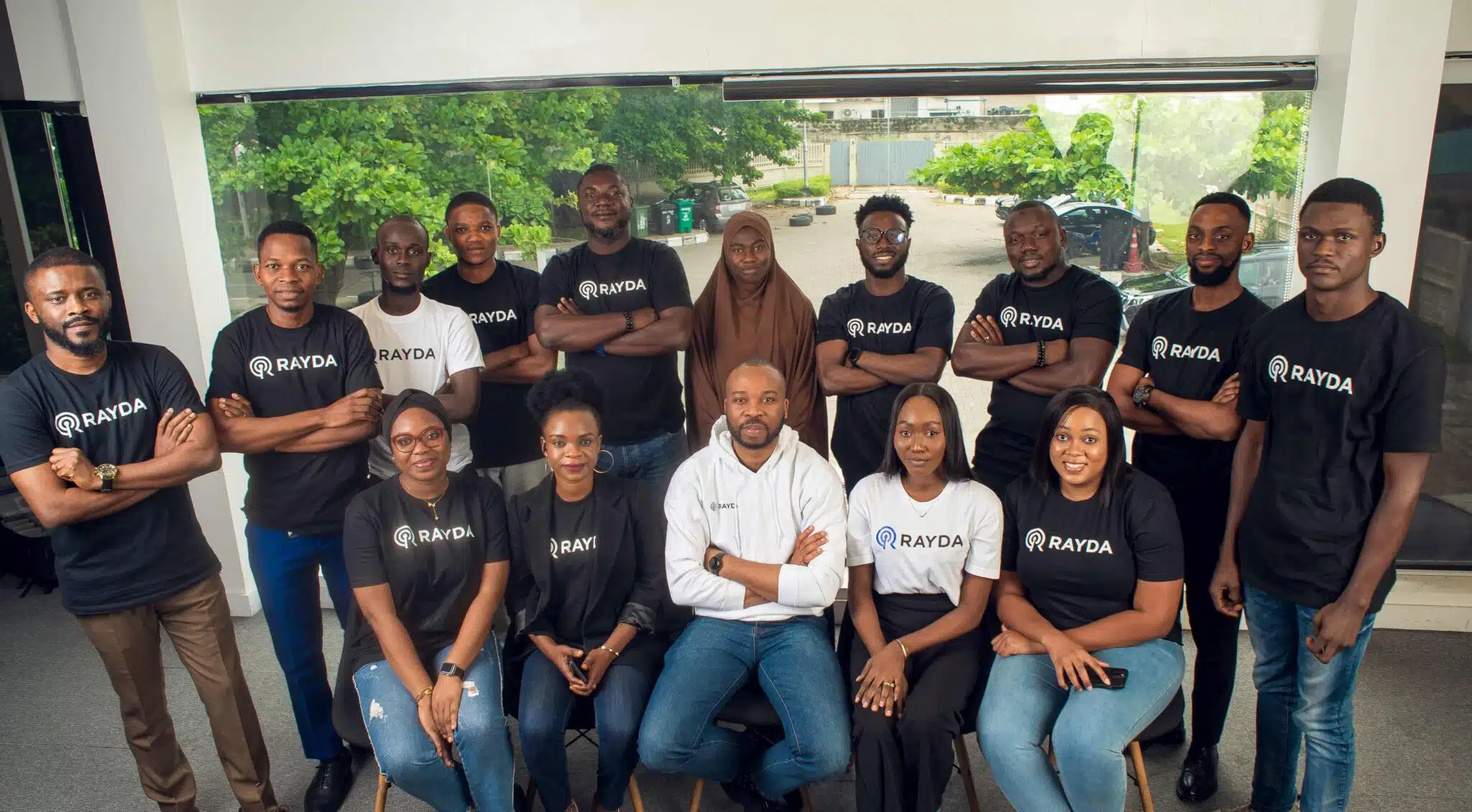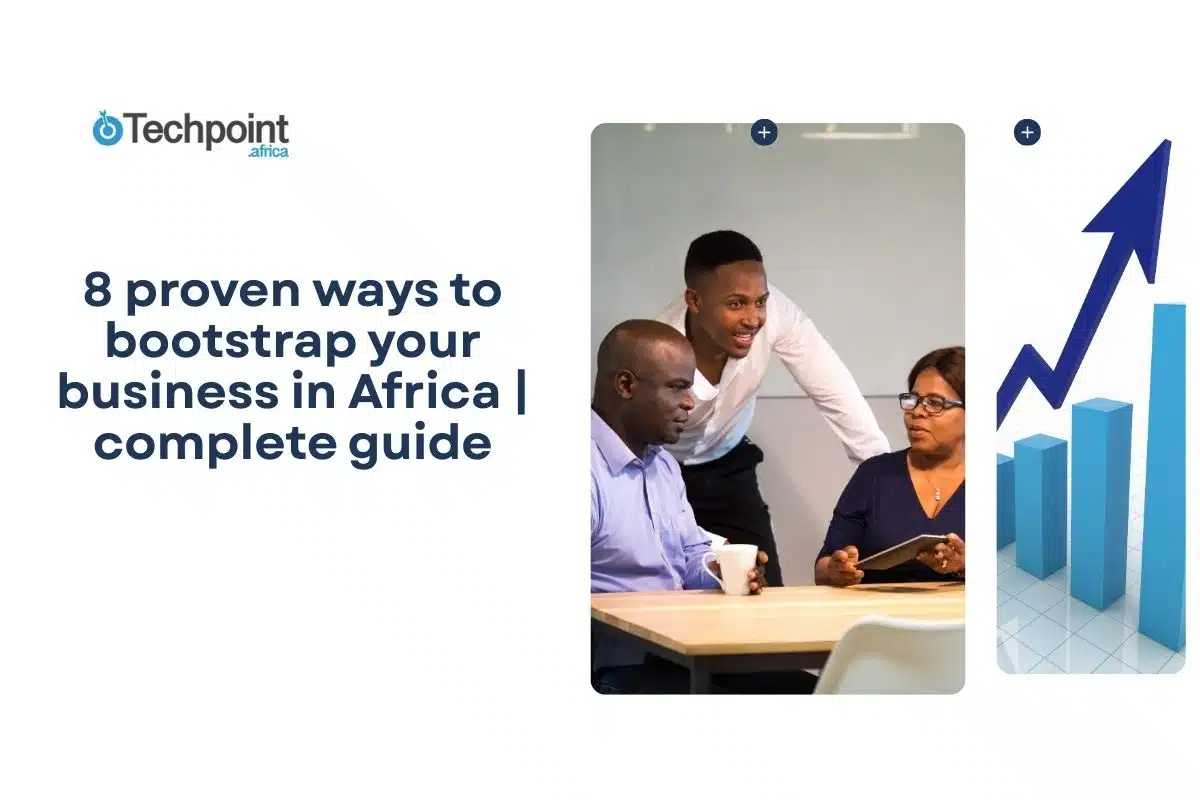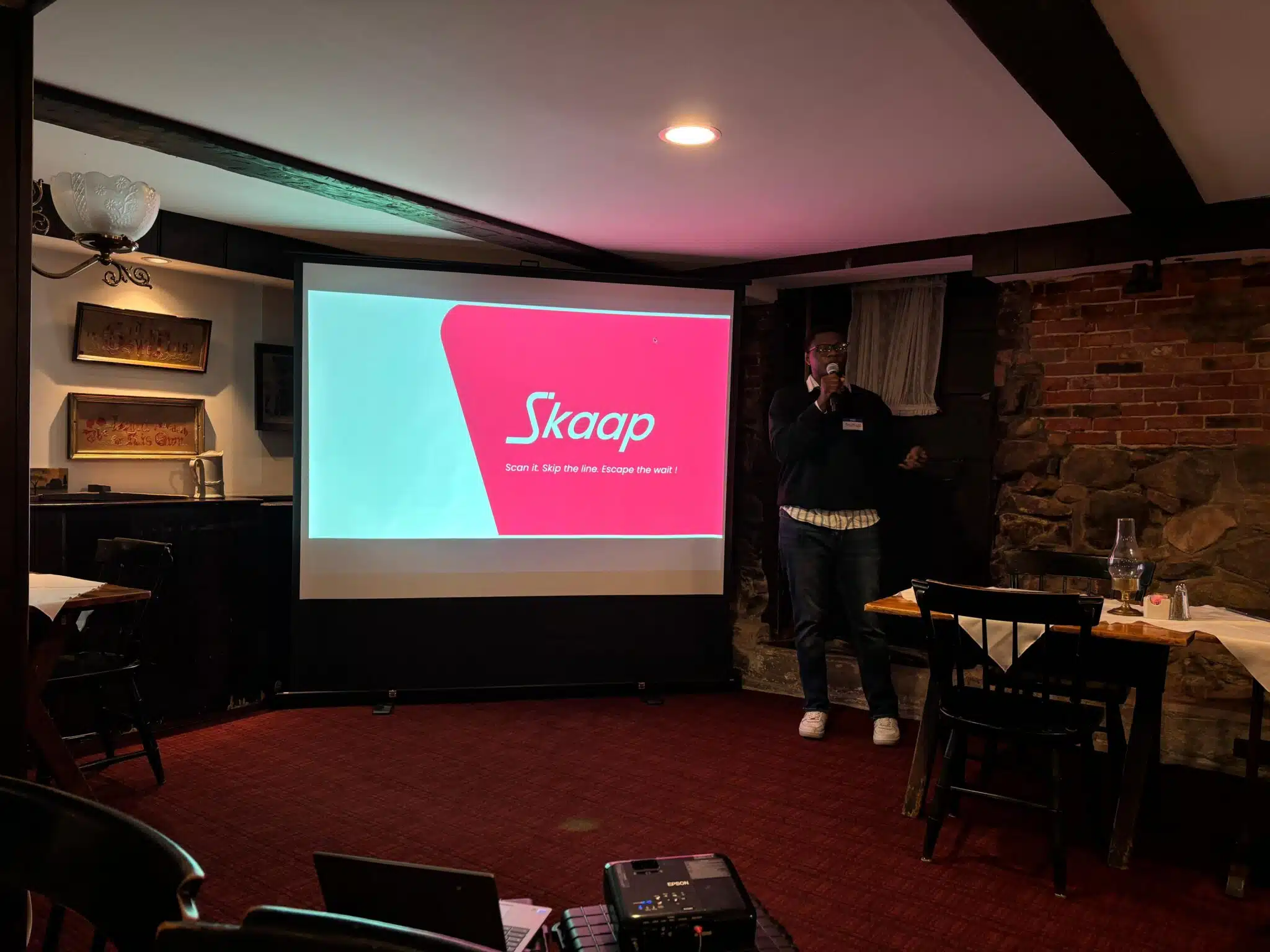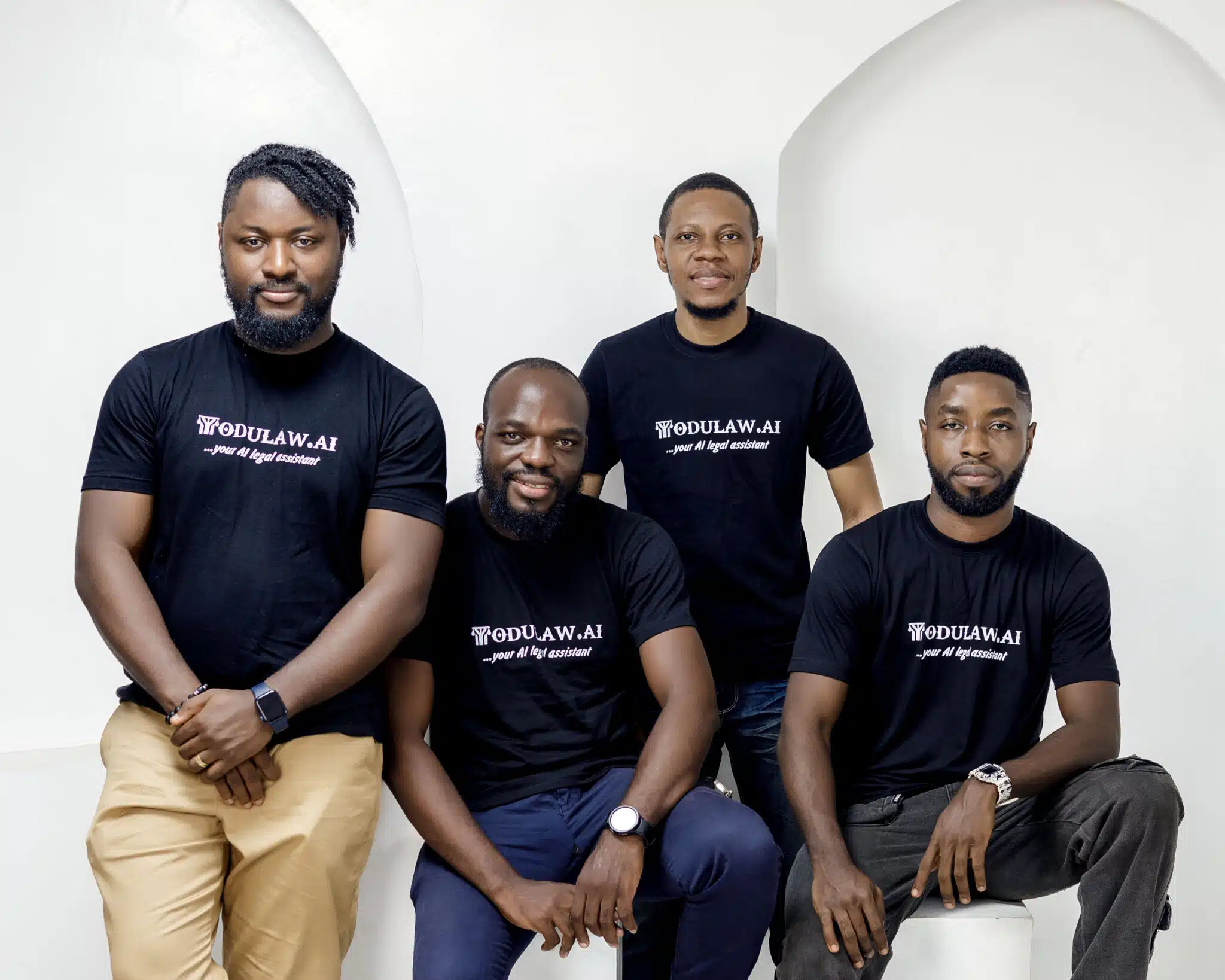While working at 54gene, Francis Osifo needed to get a laptop for an employee in Kenya. Buying the device locally was too expensive, so the team opted to purchase it in Nigeria and ship it over.
The laptop ended up stuck in customs for two months, ultimately costing the company more than if it had been purchased locally. That experience was his first exposure to the challenge that startups with dispersed teams faced in getting IT equipment to employees. As 54gene grew, he noticed that he was spending significant time getting equipment for employees
After leaving 54gene in 2022, Osifo set out to solve the problem with a new startup, Rayda. The vision was to build a fixed asset management offering for businesses.
“The thesis was that eventually, we would do everything else, but we wanted to build that one platform where companies could get visibility into all of their assets because we didn’t have that visibility. For a company that is growing really quickly where you are tracking all of the stuff that you’re buying, you can’t properly track everything,” he shared with Techpoint Africa.
The business gained steam rapidly, signing on startups like Curacel, Mira, and Ajocard as early customers and making over $15,000 in monthly revenue. While growth was decent, the startup still had to convince potential clients to ditch the Excel sheets that had served them up to that point. That changed after Nigeria devalued its currency in 2023.
A forced pivot
In one of his first acts as Governor of the Central Bank of Nigeria, Olayemi Cardoso announced that Nigeria was floating the naira.
Over the next few months, the naira’s value against the dollar plummeted significantly from about ₦464/$1 to ₦1,500/$1. For many businesses that needed inputs sourced from outside the country, that meant significantly higher costs, and for startups that had raised venture capital, that meant fighting to justify their growth when revenue was benchmarked against the dollar.
Rayda was one of those affected. While revenue in naira was growing, when reporting in dollars to investors, it was declining. Additionally, many of its clients, affected by the devaluation, were either cancelling subscriptions or missing payment timelines.
Facing declining revenue, the startup began working on other products based on feedback from customers. One, a tracking tool for IT equipment, looked promising, but while it could increase local revenue, it did not solve the issue of falling dollar earnings.

Victoria Fakiya – Senior Writer
Techpoint Digest
Make your startup impossible to overlook
Discover the proven system to pitch your startup to the media, and finally get noticed.
In June 2024, the startup decided to increase marketing efforts with a focus on search engine optimisation (SEO). That soon began yielding results and ultimately led to a pivot.
Prior to the naira devaluation, much of the business focused on financing and leasing equipment for as little as three months. But with its SEO efforts, it was getting requests from companies in the United Kingdom and the United States asking if they could monitor and manage physical assets — from hospital beds to vehicles. But the request that changed its trajectory came from a fintech that had hired a Nigerian and needed to get a laptop to them.
Their supplier was going to charge as much as $3,000 and would take up to 12 weeks to deliver, and they needed a faster alternative. Rayda helped it source a laptop in Nigeria within two days, saving the company up to 60% of the initial quote. A product it had struggled to sell in Nigeria was giving it a new lease on life.
Over the next few weeks, it helped the fintech get devices to more employees in Nigeria and South Africa. It also got inbound requests from companies such as Binance and Semrush. By August that year, it deprioritised all other products and went all in on equipment sourcing.
Today, Osifo says Rayda helps global companies with employees across multiple countries to buy, store, manage, and recover IT equipment. Meanwhile, that first client has since relied on Rayda to deploy equipment in eight different countries.
A $4 billion market opportunity
Every year, businesses spend hundreds of billions of dollars globally to purchase laptops and other IT equipment for their employees.
These investments play a critical role in improving productivity, enforcing security standards, meeting data compliance requirements, and in some jurisdictions, accessing tax benefits through capital allowances.
While sourcing and deploying this equipment is relatively straightforward within a company’s home country, the process becomes significantly more complex for organisations with distributed teams.
In these cases, companies must manage cross-border logistics, local regulations, customs duties, and payment challenges, often in regions where they lack a physical presence or local expertise.
This complexity has given rise to a growing IT asset deployment and management market, valued at over $4 billion, focused on helping companies procure, deliver, and manage IT hardware for employees around the world.
These providers streamline the entire process from procurement to delivery and lifecycle management, making it easier for businesses to support remote or international teams without compromising on efficiency, compliance, or control.
Building global operations
Operating from Nigeria, Rayda has cultivated partnerships with local providers in over 170 countries across Africa, Asia, and Latin America. These relationships are essential for sourcing equipment locally, managing warehousing, and efficiently retrieving devices when employees leave their companies.
“What we’ve done is build out the warehousing, the logistics, and the OEM relationships in these countries and then create a playbook that makes all of these work seamlessly [so] that the customer doesn’t know the magic that happens.”
To deliver these services, Rayda’s clients typically enter into contracts lasting up to three years. Revenue streams include a monthly subscription fee per employee, device price markups, and fees for warehousing (starting at $35 per month, with discounts as volume increases), onboarding, and offboarding.
While device prices vary by market, Rayda maintains consistent service fees across all regions. Unlike some competitors who apply steep markups on devices, Rayda keeps device pricing competitive, helping clients save significantly.
Since pivoting its business model, Rayda has served over 80 companies and is gearing up for its next phase of growth.
Before this pivot, Rayda primarily leased equipment to businesses within Nigeria. Despite receiving enquiries from foreign firms, it chose not to expand leasing internationally due to the capital requirements – the startup has only raised $440,000 in its history.
Instead, it is working on tools to embed itself more deeply into the workflows of clients’ IT teams, delivering greater value and capturing more of that value for itself.
“When we started off with Nigerian businesses, we saw it as a one-off transaction, but a lot of the international businesses are thinking of how it sits in their workflow. Immediately [after] someone gets hired, how does it trigger Rayda’s system to provision equipment? What happens to things like warranties, insurance, and support in these countries?”
For Osifo, this conviction has only been strengthened following the 2024 acquisitions of global competitors Hofy and Firstbase. While those companies focus mainly on North America and Europe, Rayda is carving out a niche by concentrating on emerging markets.
Rayda is building on that initial success to improve its value to clients and is in the process of obtaining a SOC 2 (Service Organization Control 2) licence. With 26 employees based in Nigeria and the UK, Osifo says Rayda is on track to reach the $1 million revenue milestone in 2025.
Africa to the world
With a predominantly foreign clientele, Osifo notes that Rayda has had to adapt quickly, especially as buyer behaviour differs significantly across markets. In Nigeria, securing sales often relied on personal interactions and relationships. In contrast, with international clients, Rayda’s website has become a key driver of lead generation and customer acquisition.
One of the major learnings has been that a large international sales team isn’t necessary. Of Rayda’s 26 employees, only four are based in the UK, and the company is currently making its first hire in the United States.
Without a physical presence in many of the markets it serves, Rayda has learnt to clearly communicate its offering and provide seamless access to its services remotely.
While there’s growing momentum behind the idea that African startups should build for global markets, Osifo believes Rayda’s relatively small size made this transition smoother. Larger startups, he notes, may face more friction due to their complexity and product scope.
“Sometimes, you might be lucky that the problems they have are similar to what you’re solving locally,” he says. “But often, you may have to build entirely new products.”











